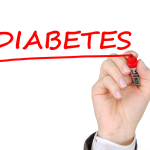Medications play a crucial role in managing and treating various health conditions, from chronic diseases to short-term illnesses. However, while these drugs can be life-saving, they often come with side effects that can affect different aspects of your daily life—including your appetite and sense of taste. Changes in appetite and taste can lead to nutritional imbalances, unintended weight loss or gain, and a reduced quality of life. Understanding how different medications affect these senses and knowing how to manage these side effects can help you maintain better overall health.
How Medications Affect Appetite and Taste
Medications can influence appetite and taste in various ways, depending on their mechanism of action, the condition they treat, and individual factors like age, metabolism, and overall health. Here are some common ways drugs can affect these senses:
- Direct Impact on Taste Buds and Saliva Production:
- Some medications alter the function of taste buds or affect saliva production, leading to dry mouth or a metallic taste.
- Central Nervous System Effects:
- Drugs that act on the brain can influence the centers that regulate hunger and satiety, increasing or decreasing appetite.
- Gastrointestinal Effects:
- Certain medications can cause nausea, vomiting, or gastrointestinal discomfort, indirectly reducing appetite.
- Nutrient Absorption and Metabolism:
- Some medications interfere with nutrient absorption or metabolism, affecting hunger signals or leading to nutrient deficiencies that alter taste perception.
Medications That Commonly Affect Appetite and Taste
- Antidepressants:
- Selective Serotonin Reuptake Inhibitors (SSRIs): Drugs like fluoxetine (Prozac) and sertraline (Zoloft) can lead to appetite changes—some people experience increased hunger and weight gain, while others may lose their appetite.
- Tricyclic Antidepressants (TCAs): Medications like amitriptyline can increase appetite and lead to weight gain due to their antihistamine effects.
- Antipsychotics:
- Drugs such as olanzapine (Zyprexa) and clozapine (Clozaril) are known to significantly increase appetite and cause weight gain, often due to their effects on hormones that regulate hunger.
- Stimulants:
- Medications like methylphenidate (Ritalin) and amphetamines used for ADHD often suppress appetite, leading to reduced food intake and potential weight loss.
- Chemotherapy and Cancer Treatments:
- Chemotherapy drugs can drastically alter taste, causing a metallic or bitter flavor, and reduce appetite due to nausea and vomiting. Radiation therapy targeting the head or neck can damage taste buds and salivary glands.
- Antibiotics:
- Some antibiotics, such as metronidazole (Flagyl), can cause a metallic taste, while others may disrupt gut flora, leading to gastrointestinal discomfort and reduced appetite.
- Blood Pressure Medications:
- ACE Inhibitors like enalapril can cause a metallic or salty taste in the mouth.
- Beta-blockers such as propranolol may reduce appetite and alter taste perception.
- Diabetes Medications:
- Metformin, a common drug for type 2 diabetes, can cause a metallic taste and reduce appetite, particularly when first starting the medication.
- Pain Medications:
- Opioids like morphine and oxycodone can reduce appetite by slowing down digestion and causing nausea.
- NSAIDs like ibuprofen may cause gastrointestinal discomfort, leading to a reduced desire to eat.
- Thyroid Medications:
- Hyperthyroid treatments may reduce appetite, while hypothyroid treatments can sometimes increase it.
- Steroids:
- Corticosteroids like prednisone are known to increase appetite, often leading to significant weight gain if used long-term.
Symptoms of Appetite and Taste Changes
- Appetite Changes:
- Increased hunger or cravings, leading to weight gain.
- Decreased hunger, leading to unintended weight loss.
- Changes in food preferences or aversions to certain foods.
- Taste Alterations (Dysgeusia):
- Metallic, bitter, or salty taste.
- Loss of taste sensitivity (hypogeusia) or complete loss of taste (ageusia).
- Unpleasant taste after eating or drinking certain foods.
Potential Health Implications
- Nutritional Deficiencies:
- Reduced appetite can lead to inadequate intake of essential nutrients, increasing the risk of deficiencies.
- Unintended Weight Loss or Gain:
- Appetite changes can cause significant weight fluctuations, which may affect overall health, particularly in individuals with chronic conditions.
- Reduced Quality of Life:
- Persistent taste changes or appetite loss can lead to decreased enjoyment of food and social isolation during meals.
- Compromised Immune Function:
- Poor nutrition can weaken the immune system, making it harder to recover from illnesses.
Managing Medication-Induced Appetite and Taste Changes
- Consult Your Healthcare Provider:
- If you notice significant changes in appetite or taste, consult your doctor. They may adjust your medication, change the dosage, or suggest alternatives.
- Work with a Dietitian:
- A registered dietitian can help you develop a meal plan to ensure you’re meeting your nutritional needs despite appetite or taste changes.
- Experiment with Flavors and Textures:
- Try new herbs, spices, and seasonings to enhance flavor.
- Incorporate different textures (crunchy, creamy) to make food more appealing.
- Stay Hydrated:
- Dry mouth can affect taste perception. Drinking water regularly or using saliva substitutes can help.
- Smaller, Frequent Meals:
- Eating smaller portions more frequently can make meals more manageable, especially if you have a reduced appetite.
- Address Nausea and Gastrointestinal Issues:
- Over-the-counter or prescribed anti-nausea medications can help manage nausea-related appetite loss.
- Eating bland, easy-to-digest foods can reduce gastrointestinal discomfort.
- Oral Hygiene:
- Maintaining good oral hygiene, including brushing your teeth and tongue regularly, can help minimize unpleasant tastes.
- Use Metal-Free Utensils:
- If you experience a metallic taste, try using plastic or ceramic utensils to reduce the sensation.
- Monitor Weight and Nutrient Intake:
- Keep track of your weight and food intake to identify trends and address issues early.
When to Seek Medical Attention
While mild changes in appetite and taste are common side effects of many medications, certain symptoms warrant immediate medical attention:
- Severe or Rapid Weight Loss: Losing more than 5% of your body weight in a month without trying could indicate a serious issue.
- Severe Nausea or Vomiting: Persistent nausea or vomiting can lead to dehydration and malnutrition.
- Signs of Nutrient Deficiency: Fatigue, hair loss, brittle nails, or frequent infections may indicate a deficiency.
- Difficulty Swallowing or Painful Eating: These could be signs of more serious underlying conditions that require prompt evaluation.
Conclusion
Medications can significantly impact appetite and taste, influencing your overall nutrition and health. While these side effects can be challenging, they are often manageable with the right strategies and support from healthcare professionals. By staying informed about potential side effects, communicating openly with your healthcare provider, and making dietary adjustments, you can minimize the impact of these changes and maintain your quality of life. Always consult a healthcare professional if you experience persistent or severe symptoms related to appetite or taste changes.
Sources:
https://my.clevelandclinic.org/health/symptoms/24228-loss-of-appetite
https://www.urmc.rochester.edu/encyclopedia/content?contenttypeid=56&contentid=dm300
https://www.medicalnewstoday.com/articles/324011









